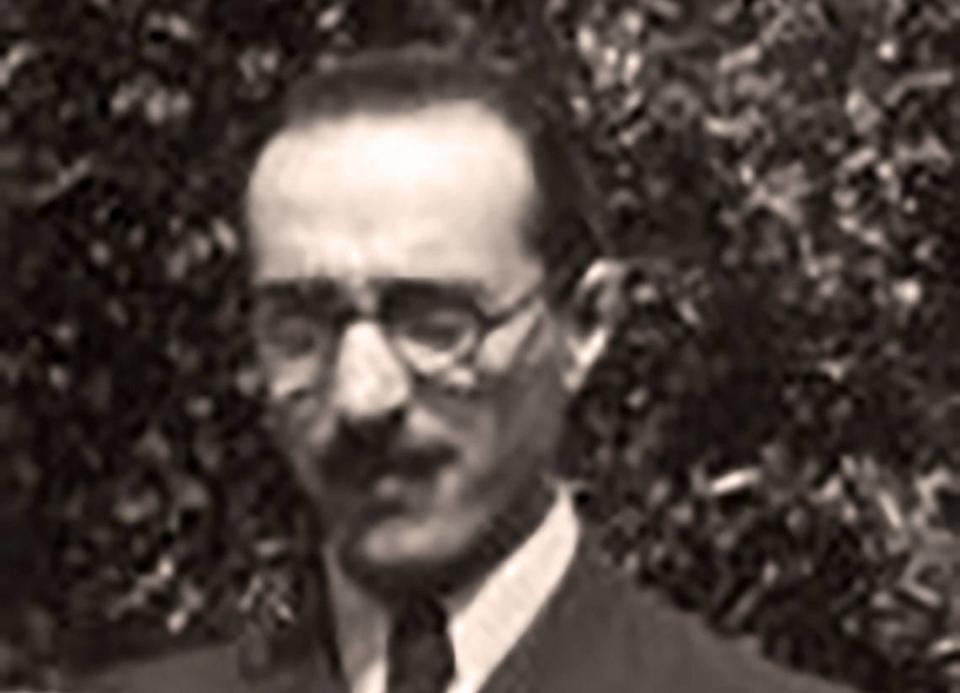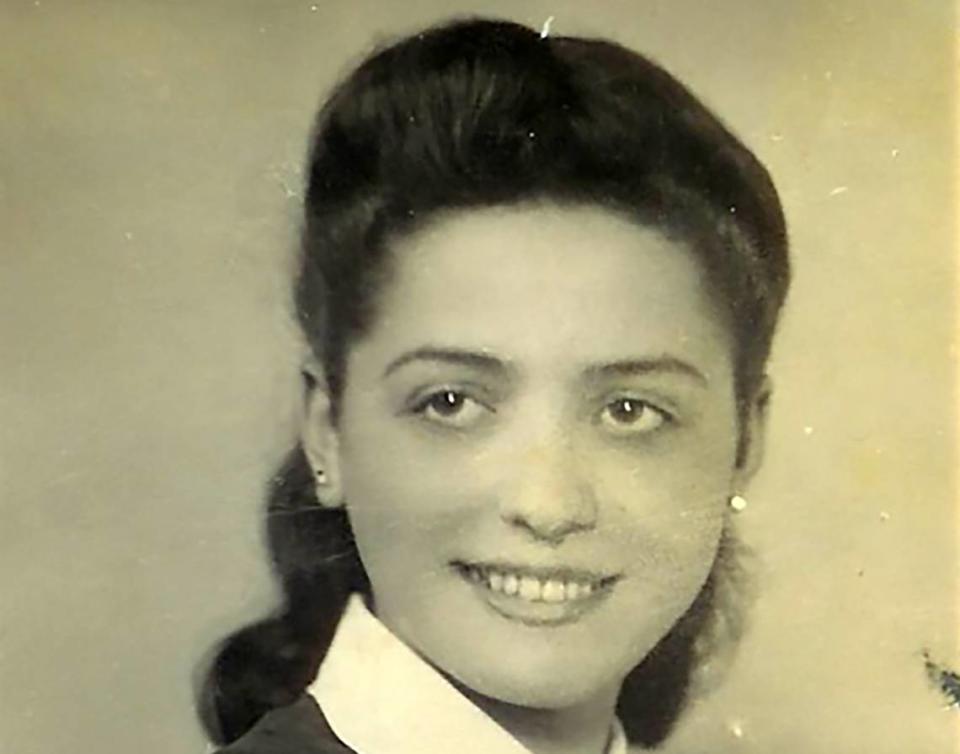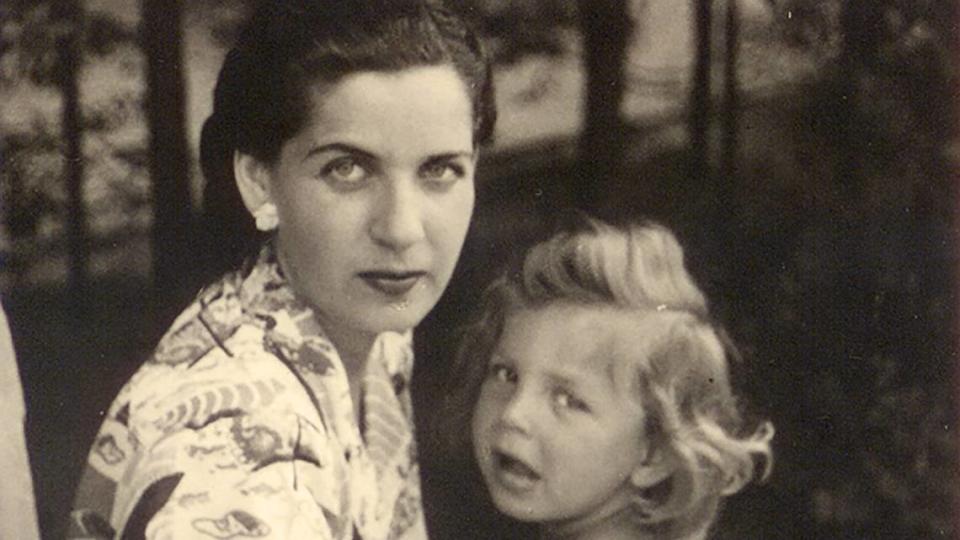If Missouri Holocaust survivor can feel ‘grateful many times a day,’ maybe we can, too | Opinion
Erika Schwartz, who at 79 is one of the younger Holocaust survivors, would never have reached even her first birthday if not for her Aunt Olga.
On July 5, 1944, Baby Erika, who was not yet three months old, her mother, Jolán Hornstein, and Jolán’s younger sister, Olga Petrover, were living in a flat in Budapest with letters of protection intended to show that they were Christians with foreign citizenship.
At the time, diplomats like Sweden’s Raoul Wallenberg were putting such papers into the hands of as many Hungarian Jews as possible. And like many such documents, not only then and there, these at least theoretically entitled those who held them to certain highly sought-after privileges, like freedom from being hunted, and the food ration stamps that meant they could eat.
Only, on that day, as Olga stepped out onto the street to get groceries, a former neighbor from Nyíregyháza recognized her and screamed, “She’s a JEW!”
Arrow Cross Party soldiers came running, and Olga ducked back inside. Then, because if she returned to her own apartment they’d all be murdered, “my scared, brave, 19-year-old aunt ran to the roof and jumped off. In ending her life, she saved mine,” Schwartz said recently, at a talk at the Midwest Center for Holocaust Education in Kansas City.
At a time of the record antisemitic violence that’s rising along with Islamophobic attacks and other hate crimes, the audience was large and attentive, staying on past the presentation for an hour of Q&A and almost another hour of one-on-one questions after that.
Though my dad and one of his brothers served in World War II, I grew up hearing very little about the Holocaust except that it happened, that its horrors were inexplicable, and from what I gathered, that it was really too vile to talk about. Only as an adult have I realized that it was too vile not to talk about.
And though I still have so much to learn, here’s one thing I concluded long before Hamas launched its Oct. 7 attack on Israel, and also before our former and perhaps future president began openly referring to certain human beings as “vermin:” The Holocaust was not so inexplicable, and could all too easily happen again, here or anywhere.
History can be told in broad strokes, but is surely most deeply felt through the stories of individuals, and Olga’s sacrifice made me want to know more about her family. It made me wonder, too, about things that cannot be known, like what happened to the former neighbor whose outburst condemned her to death. Did he spend the rest of his life knowing he’d murdered her, or never think of it again?
In a long interview at Schwartz’s home in Springfield last week, she said she thinks she does know the answer: Like all fanatics, she said, he would have been trained to feel proud of himself for ridding the world of one more subhuman.
History says she’s right, even if I’d rather imagine that Olga’s betrayer spent the rest of his life trying to atone.

Father returned to labor camp — ‘never saw him again’
She was born on April 23, 1944, one day before the Jewish ghetto in her hometown of Nyíregyháza was closed. Her maternal grandfather, a watchmaker, was “pulled out of the house in a roundup while my mother was giving birth to me.”
Her own father, Hermann Hornstein, a bridal shop manager, somehow escaped from a labor camp right after she was born, and since “every Jew had to be in the ghetto closest to his official address,” convinced authorities that their little family’s official residence was in Budapest. Then he returned to the labor camp, and “we never saw him again.” Two weeks later, Jews from Nyíregyháza began being sent to Auschwitz in cattle cars.
Erika, her mother and her mother’s sister-in-law, Klara, were the only members of Jolán Petrover Hornstein’s family who survived. A sister, Margit Petrover Bohm, almost did, but was shot to death even as Auschwitz was being liberated. According to Klara, Erika said, “the Allies were already there, … and these SS soldiers, instead of trying to get away, just hung out to kill more Jews.”
It was Klara, too, who corrected the version of the story of how Olga died that Erika had grown up hearing: In that version, after the former neighbor screamed out that she was a Jew, soldiers grabbed her, dragged her into a different building where they raped and then threw her out an upper-floor window.
Klara told Erika that no, right after the war, her mother had told her the same story but with a very different ending: Olga hadn’t been thrown to her death, but had jumped.
Why would her sister have revised the story? “My mother must have felt incredible guilt,” not just that she and her baby had survived, but that Olga had chosen to save their lives at the cost of her own. “Klara told me that my mother witnessed it, peering out, because their apartment faced the front of the building. She saw Olga hit the pavement.”

Kidnapped for six months before reuniting with mother
In the alternate version, it was Olga’s boyfriend who saw her die, and later remarked that before she did, she had been begging for water. “But that was my mother putting what she saw onto Olga’s boyfriend. It was my mother looking out the window, seeing Olga suffering and realizing there was nothing she could do.”
Even after the war, and after Jolán came to the United States in January of 1948, any relief that she might have felt was taken from her, too: The family friends with whom she’d intended to only briefly leave Erika kidnapped and disappeared with her, hoping to raise her as their own. It was six months before another family friend found her, and in July of that year, mother and daughter were reunited at the airport in Newark, where Erika remembers looking up and seeing her mother on the observation deck, screaming her name.
Jolán, not surprisingly, never found peace: “She was never able to the day she died to really understand that despite her losses, which were horrific, she had made a new life, she had children and grandchildren,” her daughter said.
Even what seemed like her fleeting moments of happiness, “were over the top and could change in an instant. … There were always expectations for how an event or a situation or person could be perfect,” and when reality fell in any way short, “it triggered hysteria. That was my role model. I was raised that way and became that way.”
But the miracle of Erika Schwartz’s story, and the other reason I wanted to meet her again after hearing her speak, is that she did not stay that way, and has through her own hard work been able to both teach others about the Holocaust and overcome the trauma passed down to her by Hitler’s nearly successful efforts to exterminate her people.
“I’m all about fun,” she said at her talk in Kansas City.
WHAT? And I know people who find that an entree served at the wrong temperature can ruin their day? When my daughter was in high school, she’d sometimes come home from her job in a high-end cafe marveling at how many of her customers seemed to feel tortured beyond their limits by the experience of having to wait the couple of minutes (exactly, every time) that it took for the cappuccino machine to produce a little cup of perfection. Though steaming, and sometimes even screaming, did not make the machine work any faster, they apparently kept hoping that it would.

At 79, ‘never been happier’
Through her mid-40s, Schwartz said, she, too, found fault easily and often, and never really even knew what feeling good felt like. But after she’d been attending Overeaters Anonymous meetings for a while, she was struck by a comment, ordinary in itself, that over time made joy possible.
Even before that day, “I had started to get an inkling that possibly I could change my life. I couldn’t change how other people around me were behaving, but maybe I could change how I reacted.”
“I was starting to realize that the only thing I ever focused on was the negative. I only saw what was imperfect in the people around me, and that of course included my entire family. … There was nothing in my head that was able to make room to even see that there were good things, good moments, too.”
So when somebody at a meeting mentioned that the only thing we can ever really change is what’s happening in our own brains, “that simple sentence burst the door wide open. ‘Wow, I can choose to be happy.’ Now I’ve got to figure out how.”
With the help of friends in her 12-step program, she trained herself to count her blessings. On her morning walk where they lived then, in Southern California, she even started running into other people’s yards on a regular basis — yes, to smell their roses.
Doing that “reminded me how beautiful this world is and that God really is a genius.” A couple of years later, “it hit me that I was no longer having to try,” but was spontaneously “feeling grateful many times a day.”
I appreciate not only that Erika Schwartz managed this, which means that maybe we can, too, but that she didn’t have to deny or minimize even the darkest realities to get there. Now, “I’ll look around and tear up: my God, my life is amazing. I’ve gone from walking around with my head in a dark cloud all the time to appreciating every beautiful thing that happens.”
The war in Israel has made that more difficult, she said, absolutely. Yet somehow, even after all that has happened and is happening, thanksgiving still comes naturally. In Springfield, she lives with her husband of almost 60 years and near their only grandchild and her family. And what an accomplishment that at 79, she says, “I’ve never been happier in my life.”

